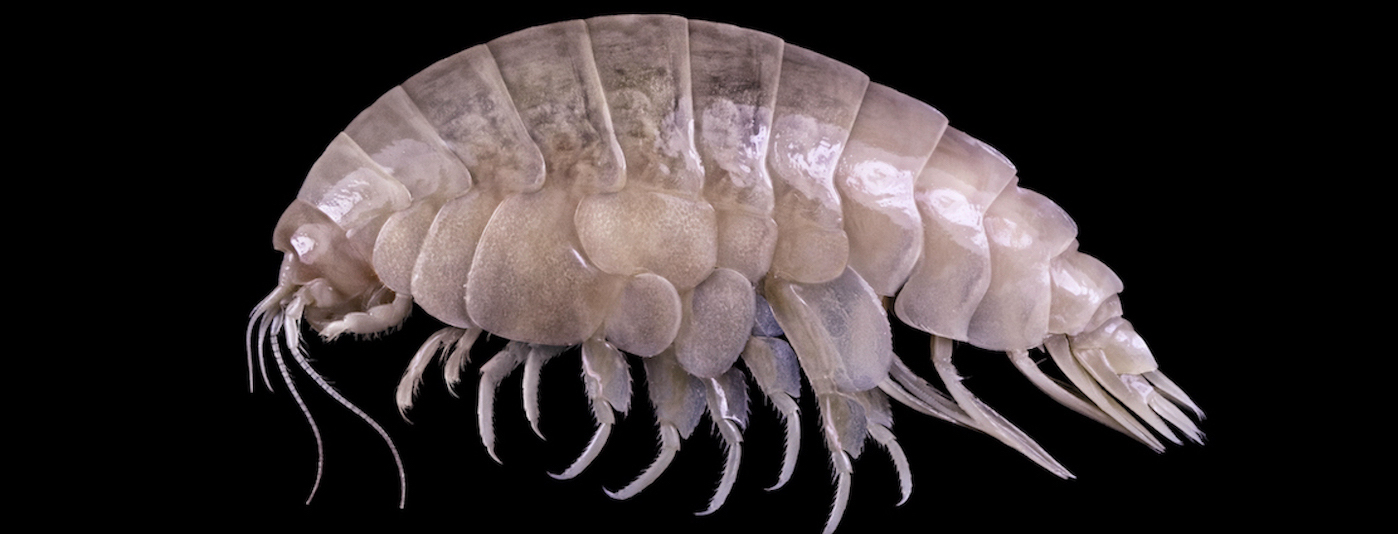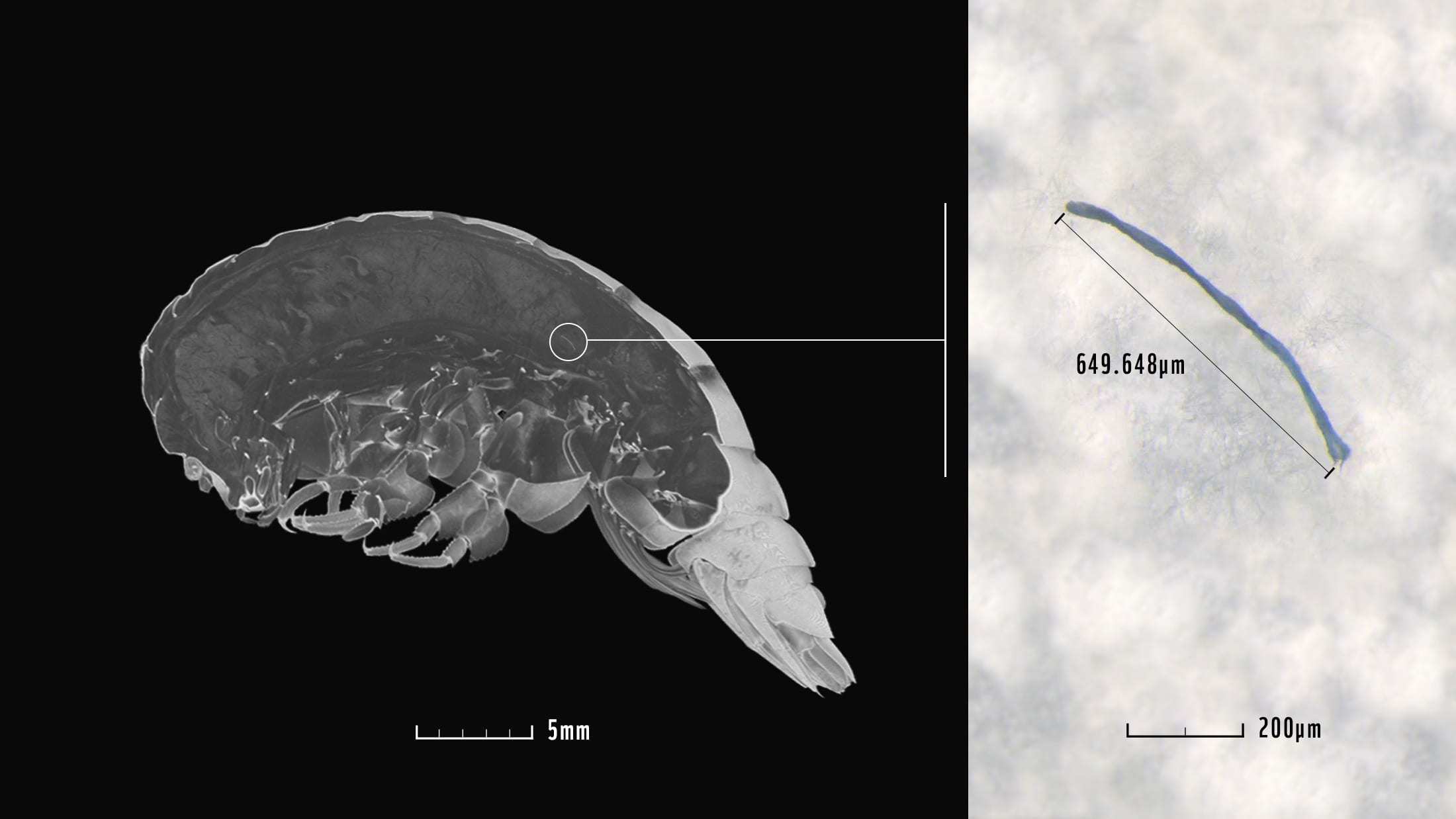
Researchers at the University of Newcastle recently discovered a new species of crustacean in the deepest part of the ocean, the Mariana Trench in the Pacific Ocean. Despite this species living between the depths of 6,010 and 6,949m underwater (for reference, Mt. Everest is 8,848m above sea level), researchers identified microplastics in their bodies. Our reliance on single-use plastic and its associated waste are negatively impacting even undiscovered species. The naming of this new species was intentional and highlights the global extent of the plastic pollution crisis.
Eurythenes plasticus is an amphipod and joins eight other Eurythenes species. Because of the scarcity of food in the deep ocean, Eurythenes has adapted the ability to eat just about anything that sinks down into the trench. Unfortunately, as non-picky eaters, they are susceptible to accidentally eating plastic. The researchers examined the stomachs of four individuals. One individual had ingested a microplastic fiber. Further, analysis showed that microplastic was polyethylene terephthalate, or PET. PET is often used to make single-use beverage containers to fibers in clothes. Unfortunately, this is not an uncommon phenomenon as other studies have found microplastics in tap water, air, salt, honey, even beer, and the list continues to grow.

The PET microplastic found inside the stomach of Eurythenes plasticus. Newcastle University
”Eurythenes plasticus tells us a story about how our trash and recycling practices on land have a global impact, reaching even the deep ocean. I hope that Eurythenes plasticus helps inspire positive actions from each of us on land.,” says Dr. Johanna Weston, lead author of the publication.
So what are the solutions?
There appear to be no easy answers except reducing the use of single-use plastics at the source. One way to address this is through legislation and there are ambitious policies attempting to tackle this. For example, the federal Break Free From Plastic Pollution Act aims to address plastic pollution across its lifecycle, from extraction and manufacture, to distribution and the point of sale, to disposal and recycling — and it’s based on policies that have been proven effective at local and state levels. You can take action in support of the bill by signing our action alert for the Break Free From Plastic Pollution Act.
Another concept is holding producers of plastic packaging more responsible. For far too long, the public has had to pick up the cost of recycling and waste disposal, as well as cleanup, for hard to reuse and recycle single-use plastic packaging.
The plastic crisis may seem like a daunting problem with far-reaching impacts never even thought of or to species yet to be discovered! The good news is that we each can play a role in protecting our environment. Our small actions can make a difference. Learn more by visiting our Rise Above Plastics page.